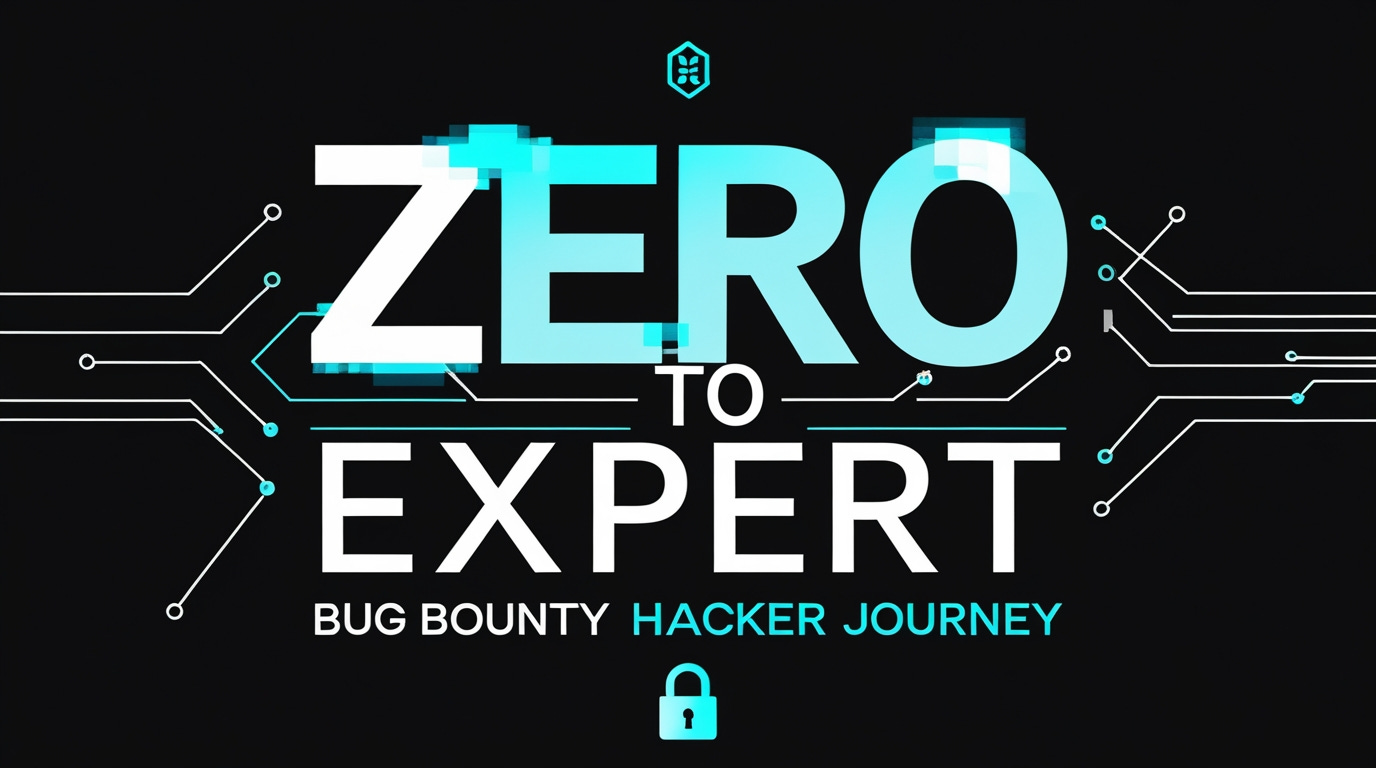🚀 From Zero to Expert: Starting Bug Bounty with Zero Knowledgep
> “I was a regular student with zero clue what bug bounty hunting meant. Today, I’ve reported bugs to NASA, Sony, and private programs, earning money, recognition, and freedom. You can too.”
Many people think bug bounty requires advanced coding skills or years of cybersecurity experience. The truth? You don’t need any of that to start. You need structured learning, practical practice, and consistency.
If you want to build your hacker mindset, earn while learning, and level up your skills, this guide is for you.
🧭 What is Bug Bounty Hunting?
Bug bounty hunting is the practice of finding vulnerabilities in websites, APIs, and applications and reporting them responsibly to companies in exchange for monetary rewards or recognition.
Platforms like HackerOne, Bugcrowd, Intigriti, and private programs pay hackers worldwide to find and report real security issues.
It’s legal hacking for a purpose.
🩻 Why You Don’t Need to Be an Expert to Start
You don’t need:
❌ A computer science degree
❌ To be an elite coder
❌ Years of experience
You need:
✅ Curiosity
✅ A learning mindset
✅ Consistent practice
Bug bounty is about understanding how things break, and you learn best by doing.
⚡ Step 1: Learn How the Web Works
Before you can hack, you need to understand what you’re hacking.
✅ What happens when you type a URL into your browser?
✅ What is the client-server model?
✅ What is HTML, JavaScript, HTTP/HTTPS?
✅ How do requests and responses work (GET, POST, headers, status codes)?
> Action: Watch free YouTube videos on HTTP basics and client-server architecture. Use Mozilla Developer Docs for quick, clear references.
🛠 Step 2: Build Your Hacker Lab (Free)
Your environment matters. Set up a safe playground to practice without fear of breaking anything.
✅ Install Kali Linux or Parrot OS (as a VM or on bare metal)
✅ Install Burp Suite Community Edition (for intercepting and manipulating HTTP traffic)
✅ Use VS Code for quick scripting (Python, Bash, JavaScript)
✅ Use Git to manage recon scripts, wordlists, and notes
✅ Choose a note-taking system (Obsidian, Notion, or Markdown files)
> Action: Don’t overthink your lab. Start small and improve as you go.
📚 Step 3: Learn Core Vulnerabilities
Focus on high-impact, high-frequency vulnerabilities:
XSS (Cross-Site Scripting)
IDOR (Insecure Direct Object References)
SQL Injection
SSRF (Server-Side Request Forgery)
CSRF (Cross-Site Request Forgery)
These are the bread and butter of web hacking.
> Action: Use PortSwigger Web Security Academy and Hacker101 to learn and practice these vulnerabilities hands-on for free
🕵️ Step 4: Learn Reconnaissance
Recon is about discovering your attack surface before others do.
Learn to:
✅ Find subdomains (amass, subfinder)
✅ Discover endpoints and hidden directories (ffuf, dirsearch)
✅ Perform passive recon (crt.sh, Shodan, Censys)
✅ Use Nuclei for automated vulnerability checks
> Action: Recon will separate you from many hunters. Master it.
💥 Step 5: Practical Hunting and Testing
Move from theory to practical hunting.
Sign up for HackerOne, Bugcrowd, Intigriti, and explore public programs.
Pick a program with clear scope.
Start testing for common vulnerabilities manually.
Use Burp Suite to intercept requests and test parameters.
> Action: Hunt while you learn, not after you’ve learned everything
📝 Step 6: Reporting Vulnerabilities
Finding a bug is half the battle; reporting it effectively is the other half.
A good report should:
✅ Clearly describe the vulnerability and its impact
✅ Include a step-by-step Proof of Concept (PoC)
✅ Attach screenshots or videos
✅ Suggest a mitigation path
> Write with empathy, aiming to help developers understand and fix the issue.
📓 Step 7: Document Everything
Keep track of:
✅ Payloads you’ve tested
✅ Targets and scopes
✅ Bugs found, reported, and responses received
✅ Lessons learned
This will become your personal knowledge base for hunting faster and more efficiently over time.
🛡 Common Mistakes Beginners Make
❌ Trying to learn everything before starting
❌ Focusing only on tools and automation
❌ Ignoring the impact of a bug
❌ Copy-pasting without understanding
> Avoid these by practicing intentionally and reflecting on your process
❤️ You Belong Here
If you’re still reading, it means you’re serious. Remember:
✅ You don’t need to be an expert to start.
✅ Start now, learn while hunting, and iterate.
✅ This journey will transform your skills, mindset, and opportunities.l
📩 Subscribe to 0×mun1r to stay ahead in your bug bounty learning journey.
If you found this post helpful, share it with a friend who wants to enter hacking, or forward it to your study group.
---
🗨️ Community Question:
What is your biggest blocker in starting your bug bounty journey right now?
Reply to this email or comment below. I will address the most common blockers in a dedicated post.
#BugBounty #Hacking #Cybersecurity #Infosec #0xmun1r #FromZeroToExpert #LearnHacking



